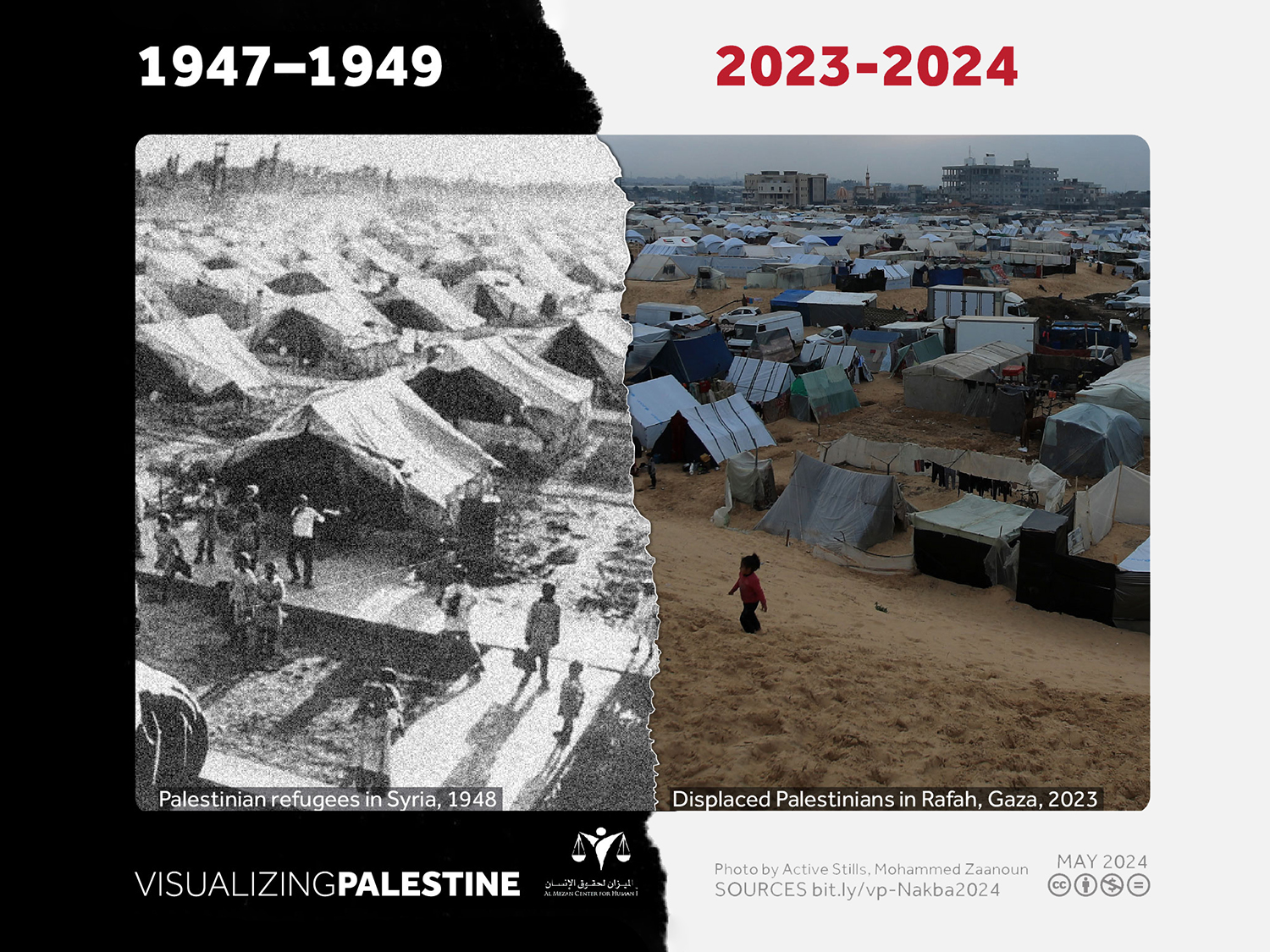‘The Question of Palestine’ seminar series
Following up on the ongoing conflict in the Middle East/SWANA region, the Center for Contemporary and Digital History presents an online seminar series on “The Question of Palestine”.
In this series, we invite academics and subject matter experts to present their research and work which speaks on the historical context of the conflict in the region and its implications on the different practices from migration studies to cultural heritage, archival practices, filmmaking, feminist theory and data visualization.
- Session 1 – The ‘Peace’ to Come? The Abraham Accords as a Model
- Session 2 – Jewels that Resist: Against Colonial Geographies, a conversation with Ariella Aïsha Azoulay
- Session 3 – History of Palestinian Women Through Film and Photography
- Session 4 – Visualizing Palestine: Data Visualization and Difficult Histories
- Session 5 – The UNRWA Archive of Palestine Refugee Family Files: A 75-Year-Old History in the Digital Age
- Session 6 – The Question of Palestine in the Age of AI and the Digital: Surveillance, Power, and Responsibility
Session 5 – The UNRWA Archive of Palestine Refugee Family Files: A 75-Year-Old History in the Digital Age
Speaker: Dr. Roger Hearn & Dr. Valeria Cetorelli
Chair: prof. Thomas Cauvin
Moderator: Dr. Myriam Dalal
In 1950-51, the United Nations Relief and Works Agency for Palestine Refugees in the Near East (UNRWA) conducted a census to register those who had lost their homes and means of livelihood as a result of the 1948 war in Palestine –known in Arabic as al-Nakba, the catastrophe. Since then, the Agency has maintained and updated family files of registered Palestine refugees. These files now span up to five generations, documenting family composition, places of origin in pre-1948 Palestine, circumstances of displacement, and subsequent life events to the present day. With the generous support of the Government of Luxembourg, UNRWA completed the scanning of all files in 2025, following the rescue of those stored in Gaza City after the outbreak of hostilities and the transfer of those from East Jerusalem to Amman due to the Israeli Parliament’s bills banning UNRWA. The digitization of the file content will begin shortly through a semi-automated workflow with human-in-the-loop oversight. The resulting digital records will be archived in a digital preservation system and made accessible via an online interface developed in accordance with cybersecurity best practices and standards. In the event of a political settlement, the digital preservation and accessibility of the archive will be instrumental in advancing the rights of Palestine refugees.
Dr. Roger Hearn is currently the Director of Relief and Social Services with UNRWA and holds an affiliation with the School of Global Health at the University of Copenhagen.He has held senior leadership positions with the United Nations and several international non-governmental organizations (INGOs) in conflict-affected countries including Syria, the occupied Palestinian territory (oPt), East Timor, and Mozambique. As Regional Director for the Middle East and Eurasia with Save the Children, Dr. Hearn oversaw humanitarian operations in 19 countries, including the half-billion-dollar Syria Regional Response. He also served as UNRWA’s Field Director in Syria, leading the largest humanitarian agency operating in the country before and during the early stages of the conflict. Dr. Hearn has previously worked as Regional Director for CARE International and as a Senior Researcher with the World Health Organization (WHO). He has a longstanding interest in peacekeeping, having worked with the UN Transitional Administration in East Timor (UNTAET) and conducted doctoral research on peacekeeping in Southern Africa.
Dr. Valeria Cetorelli has been with UNRWA since 2018, serving six years as Head of Refugee Registration and Eligibility and currently as Deputy Director of Relief and Social Services. She holds a PhD in demography from the LSE and has extensive experience leveraging data to guide humanitarian assistance and development policies and advance human rights and international justice for conflict-affected and displaced populations. She has led large multidisciplinary teams, managed complex multimillion-dollar programmes, and published high-impact research. Prior to joining UNRWA, she worked as Demographic Statistician at UNESCWA and as Research Officer at the LSE Middle East Centre and at the Johns Hopkins Center for Refugee and Disaster Response.
